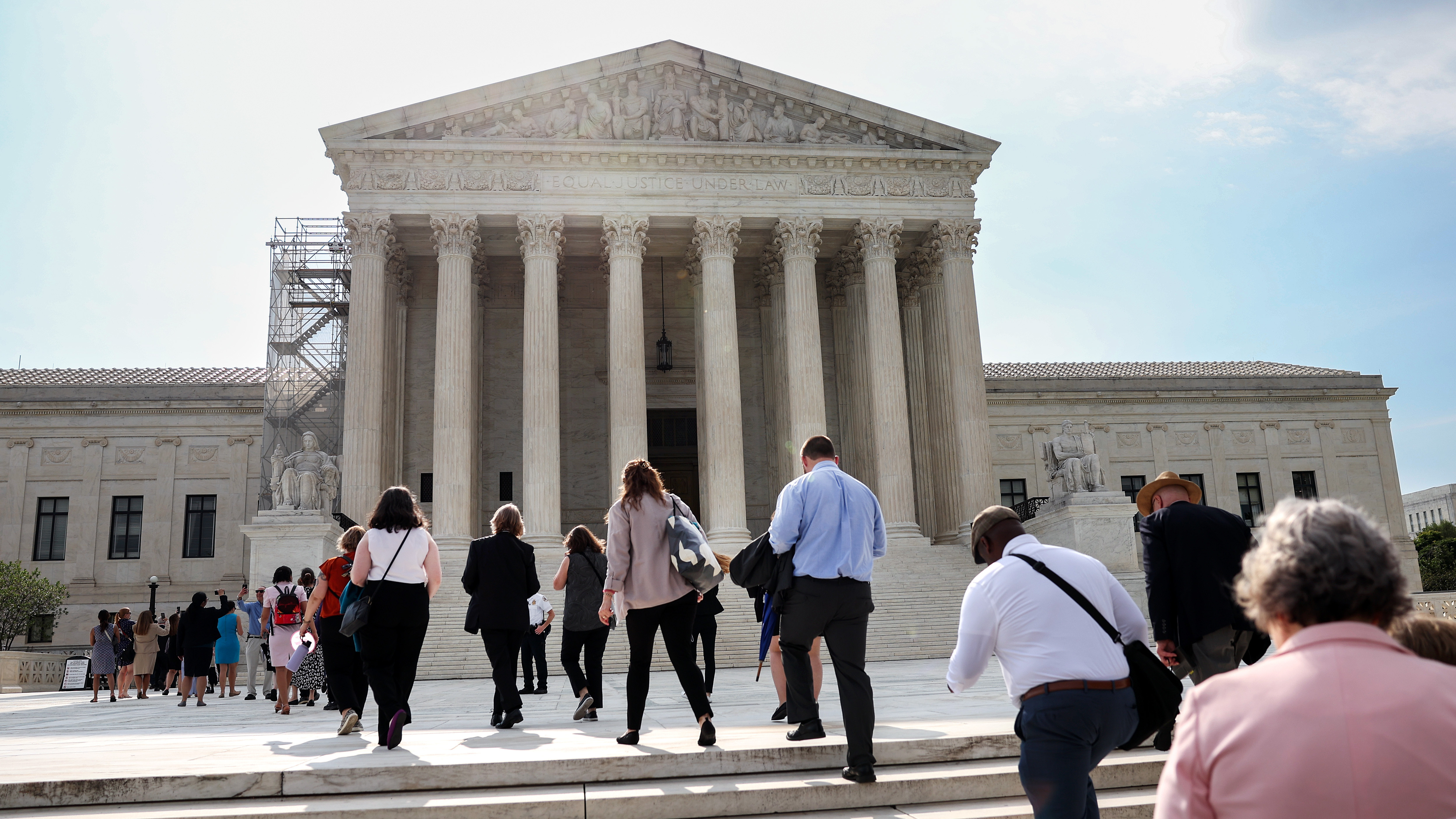Moore v. harper prediction
Supreme Court stops power grab by NC politicians in historic Moore v. Harper ruling.
Ever since the Supreme Court first agreed to hear the case, Moore has drawn alarm from across the political spectrum, with liberal activists and grandees of the conservative legal movement alike condemning the independent state legislature theory as a threat to American democracy. Adam Serwer: Is democracy constitutional? That said, few justices seemed interested in adopting the more aggressive variations of the independent state legislature theory that could throw American elections into chaos. The independent state legislature theory is frustratingly difficult to understand—which is one of the reasons Moore has caused such alarm. In essence, proponents of the theory argue that the Constitution grants state legislatures an unusual degree of nearly unchecked power to control how states administer federal elections. How much power, and how unchecked, depends on what variation of the theory you adopt.
Moore v. harper prediction
Center for American Progress. Today, the U. Harper , a case that could strike a major blow to free and fair elections. The Supreme Court would be wise to reject any form of the ISL theory when it issues its decision in this case next year. Constitution to assert that state legislatures—and only state legislatures—have the authority to set election related rules and draw congressional maps. As counsels stated, the ISL theory could threaten free and fair elections in several ways , including by stopping courts, constitutions, and governors from protecting voters from politicians; making election administration exceptionally chaotic; and pushing a massive wave of litigation into the federal courts. These arguments echoed the conclusions of a slew of high-profile conservatives who filed amicus briefs arguing against the ISL theory, including state court chief justices , former judges , prominent attorneys , former members of Congress , a co-founder of the Federalist Society , and former U. In a recent op-ed published in The Atlantic, conservative stalwart Michael Luttig —a former federal circuit judge who co-wrote a key brief in this case—starkly warned that Moore v. Sign Up. Alito also remarked that Congress can act as a check against rogue legislators.
Motion for an extension of time to file the briefs on the merits filed.
This week, the Supreme Court will hear oral arguments in Moore v. Harper , a North Carolina congressional gerrymandering case. That is not how our system works. Legislatures cannot ignore the constitutions to which they owe their very existence. They cannot act outside the law, without any checks and balances.
Harper — read about it here. In Moore v. The legislators have argued that a debunked interpretation of the U. The gerrymander was so extreme that an evenly divided popular vote would have awarded 10 seats to the Republicans and only four to the Democrats. The map was a radical statistical outlier more favorable to Republicans than Because the U.
Moore v. harper prediction
For the second time this month , the Supreme Court has preserved the legal status quo on election law — causing liberals to breathe a huge sigh of relief. The North Carolina legislature is expected to draw a new gerrymander this summer. But the case has wider, more meaningful consequences for the rest of the country. The case, called Moore v. The Supreme Court thoroughly rejected the most extreme interpretation of the theory, which argued that state courts have no power over how federal elections are run. The fact that the court rejected this version of the independent state legislature theory is a big deal, since even partially accepting it would have had drastic consequences for election administration. And the impact may not have been limited to congressional maps: State courts might not have been allowed to strike down any laws dealing with federal elections, such as voter-ID requirements or restrictions on absentee voting.
12246 train
Unsurprisingly, the three liberals — Justices Sonia Sotomayor, Elena Kagan and Ketanji Brown Jackson — had little tolerance for what they clearly believed was an attack on state court review. Most importantly, as the argument wore on, there was an increased focus on the concurrence in Bush v. Brief amicus curiae of Benjamin L. They fought a war to break away from a runaway legislature, and they founded a new government based on the precept that legislatures and all government bodies can only act within the limitations placed on them by written constitutions ordained by the people. Proponents of the independent state legislature theory try to hang their hat on the U. Brief amicus curiae of Professor Derek T. Aiding their efforts were the arguments by the lawyers for Harper. Justices ask questions for several reasons: to flesh out their own understanding of the facts, test the legal strength of the case and persuade the other justices. Brief amici curiae of Local Government Law Professors filed. The new congressional map drawn by the special masters was adopted by the state court for the election. Arnold Schwarzenegger filed. Senator Sheldon Whitehouse, et al. We'll assume you're ok with this, but you can leave if you wish.
Six justices decided not to burn the right of the people to govern themselves to the ground.
Kavanaugh, J. As a result, I would not expect a decision before late June. Corrected brief and file to be submitted. They cannot act outside the law, without any checks and balances. Reives, II filed. There was little appetite for the strongest form of the ISL theory offered by the Moore lawyer in this case. Michael Sozan. You also have the option to opt-out of these cookies. Harper Share. Accessibility Tools. Donate to help our work of protecting democracy.


I recommend to you to visit a site on which there is a lot of information on a theme interesting you.